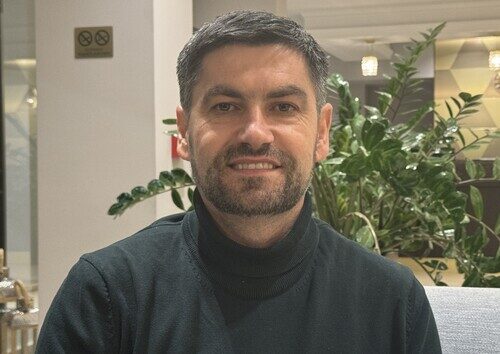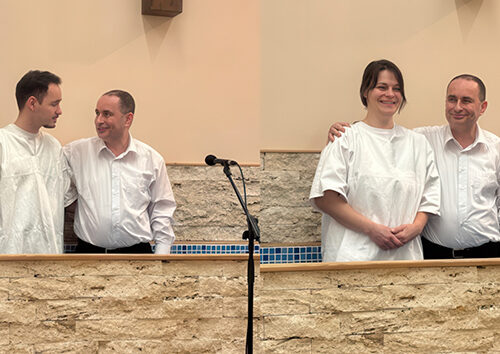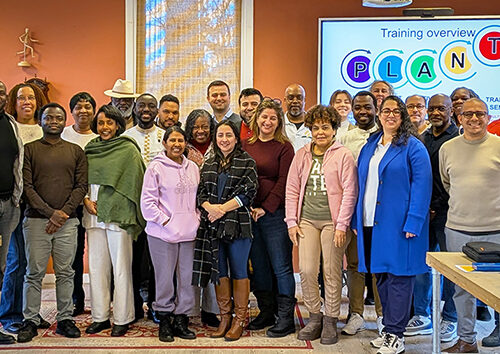28 November 2024 | Plovdiv, Bulgaria [Želimir Stanić with tedNEWS]
Želimir Stanić serves as the Executive Secretary of the South-East European Union Conference (SEEUC) based in Belgrade, Serbia. A participant and presenter at the Adventist Mission in Orthodox Cultures Conference which recently took place in Plovdiv, Bulgaria, Stanić shares his perspective with tedNEWS on the experience of living and growing up in both an Orthodox and Adventist environment. While a committed Adventist, Stanić continues to have a deep respect for his cultural and religious background.
I was born and raised in a family where my father was an Adventist and my mother was Orthodox. My great-grandfather was an Adventist and received a Bible before the Second World War. His colleague, a communist, was looking for literature about communist ideas, but instead, someone gave him a Bible—which was not the book he was seeking. Knowing that my great-grandfather Alexa was pious, he walked on foot to his village to give him the Bible. He told him, “I know, Alexa, that you are a pious man who would love to read this book, and if there is something you don’t understand, ask me, and I will explain.”
My great-grandfather started to read the Bible, and, of course, he discovered what it shared about the biblical Sabbath. However, he was told by those around him that this was not a ‘correct’ Bible. So, he went to the church and asked the priest to compare the Bible he had received with the Bible at the church. He found out that both Bibles said the same thing. He asked, “Why do you keep Sunday instead of the Sabbath?” The priest acknowledged that such a change had been made centuries before but said, “We are too weak (the church) to go back and change again.” Alexa responded by saying, “I would like to go back.” So, he started living as he read in the Bible.
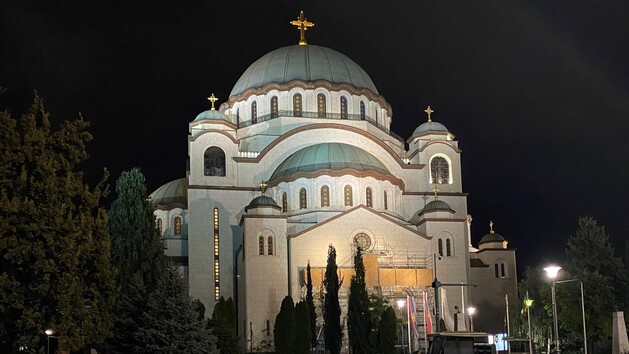
Prejudice and Persecution
Historically, choosing your lifestyle in the Balkans was not always possible. There were established patterns that you needed to follow. When my great-grandfather started to keep the Sabbath, it was noticeable to the neighbours, particularly regarding a piece of land he allowed villagers to use once a year for a festival. While he continued to permit them to use his land on the Sabbath, he informed them that he would not be joining them. In response, they took a horse and carriage and drove through his garden, destroying his plants. They declared, “We want you to know we are unhappy with your new ideas.”.
Later, around 1943, his 23-year-old daughter died. When he sought a place to bury her, the local priest objected because my great-grandfather was an Adventist. The priest said, “There is no place for you to bury your daughter because you are a Sabbath keeper.” Eventually, he buried his daughter on a piece of land near his house after the authorities refused to support his request to have her buried in the cemetery. That grave is still there today, a poignant memory of that time.
Over time, his sons and daughters grew accustomed to his ‘new ideas’ and became Adventists. One of his sons was my father. He initially left the church and met my Orthodox mother, and they married. A couple of years later, when they started to build a new Adventist church in the town, his cousin said, “Ranko, our place is there.” My father returned to the church, but my mother remained Orthodox.
There were both negative and positive aspects of having my dad as an Adventist and my mum as an Orthodox. One negative was that I always wondered why my dad attended church without Mum. I couldn’t understand it, especially since other children attended church with both parents. On the positive side, I grew up very aware of other people’s beliefs. When I began working as a pastor, people appreciated that I could value and respect their worldview. I attribute this respect to my love for my mum and her beliefs and convictions.
A Special Connection
When I enter an Orthodox church today, I feel very comfortable with the atmosphere, even though I was raised an Adventist. I think I can say, “A part of me is still Orthodox,” and I hope nobody misunderstands what I mean by this. As a district pastor, I made it a point to build friendships with the local Orthodox priest and leaders.
My understanding of the Orthodox Church in Serbia today is that it continues to be a small part of my roots. It’s there—not dominant—but it is there. Because many members of my family are Orthodox, I feel a connection with them in some small way because I love them, even as a fourth-generation Adventist from my father’s side.
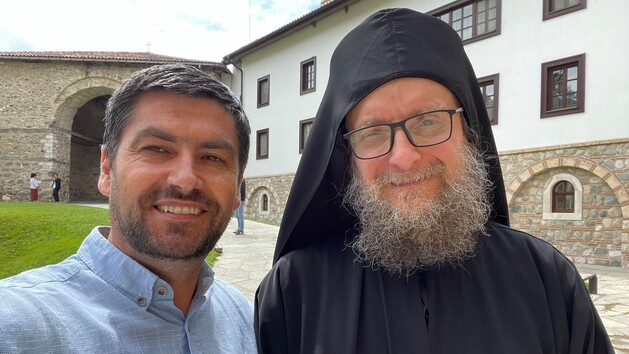
My love for Adventism grew from the care and mentoring of the elders in my local church. I loved to read, and the elder often shared books with exciting titles. I didn’t know then that the books needed to be paid for, but the elder always covered the cost of the books he sent me. Many years later, his son became a pastor, and I had the privilege of mentoring him!
There is a song I often sing that says, “In Jesus, I have happiness, joy, and everything.” As my faith matured, I understood that Jesus is at the centre of my faith. I strive to reflect that in my ministry and the wider church I serve. I also make a point of talking about Jesus first when engaging with friends and colleagues and in conversations about the church’s life.
My dream for the church, as it connects with people of any faith or none, is to see it become more open to all. I want my church to return to being a movement, sharing a fresh and vibrant picture of Jesus, particularly with fellow Christians. I want our church and its members to cooperate with others rather than criticise or diminish the importance of those who hold different beliefs. Additionally, our church must prioritise contextualising its message when sharing what we believe.
[Featured image: David Neal, other photo: courtesy of Želimir Stanić]
